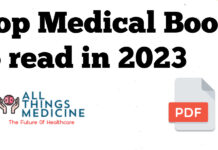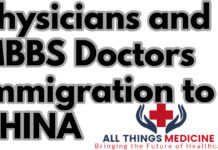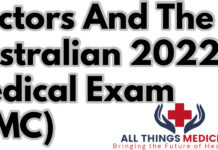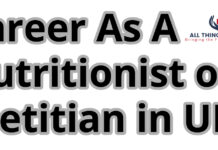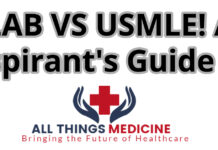Page Contents
Guide to clinical electives in the UK
A clinical elective in the UK or abroad is the perfect way to start planning for a professional career abroad. If you are a medical student who wishes to get into a residency program in the USA or the UK or wants a guide to clinical electives in the UK or anywhere else. A clinical elective in any foreign country is a marvellous opportunity for you to start working on the dream, a clinical elective not only boosts up your confidence but it also helps you in getting better visa acceptance and higher chances of being accepted into a residency program (by working in an international hospital that is much different from those at your home).
Even if you are planning to apply for a training or non-training job in the UK or USA after graduating from your medical school, or are a PLAB or MRCP aspirant or any UK concerned program, A clinical elective in any of these two countries will help you a lot in getting a hospital job. Recent clinical experience of working abroad are of extreme importance when it comes to the selection criterion of hospitals for candidates.
Why electives in the UK?
these reasons listed below will help you answer the above question for yourself.
Residency dream
The first and prime reason for any candidate wanting to get into a residency program in the USA. Yes, for any country, you have to be familiar with how it works and this is the best way, working in their hospitals before working in their hospitals. You get to know the system, like a mock exam you get the pattern and the idea. Hospitals prefer candidates who have experience working in their country. Clinical electives anywhere have an impact on your CV but more if you do it in the same country you wish to live your life later on in.
Making an example and source of motivation
Mostly medical students who graduate do not have much concept of working outside abroad. Clinical electives abroad not only help you in a newer experience but also those around you, you become a source of motivation for your fellows that it is possible to dream of working anywhere you want, especially the USA. You break the stereotype that British people are welcoming and so is the country and there are a lot of opportunities for anyone from anywhere.
Clinical learning and exposure
The United Kingdom stands 3rd in the list of the best countries of the world in the TIME magazine and 4th in the top 10 public health care systems in the world by USNews. This marks again a huge opportunity for you to work with the best healthcare professionals this world can offer, speeding up your learning to an infinite amount.
Technology at its best
For students coming from developing countries or those who have not been to bigger hospitals. The UK, let me provide you with some information, is one of the countries in the world that has the latest technology in the field of medicine. These clinical electives not only groom you with the best doctors but also shows you how the best equipment in the world works. All those dreamed of procedures and robotics working around you in a highly efficient way may just provide you with a way to get the system into your hometown or country too someday.

Exploring their world
Of course, no one would miss out on the chance to visit the exotic and fun places the country they live in to provide. Alongside clinical experience, you can get to know the culture, tradition, and way of life of people in the UK. Make foreigner friends and know how they think and work.
Estimated expenses in the UK clinical electives
- Electives fee: None (electives are mostly free)
- Visa and consultation fee: PKR 12,000 ($120 or 85 British Pounds mostly)
- Plane tickets: PKR 60,000 return air tickets (prices may vary according to currency changes)
- Traveling expenses: PKR 20,000 per month (you have to buy a prepaid travel care for traveling anywhere in West Midlands)
- Accommodation: PKR 30,000 per month (excluding meals)
TOTAL EXPENSES: Around PKR 250,000-300,000
Procedure for application of Clinical electives in the UK
It is different for hospitals. Normally you have to search for and contact the hospital for their process and they will guide you through it. You should plan your electives ahead of time by seeking their clinical electives calendar and choose the dates perfect for your arrival and departure. Clinical electives take place around the year almost at all times.
Making the approach
The initial approach should be to a named contact. The email or letter should contain the dates of the proposed elective and the plans. Medical students should provide details about their medical education so far and include a CV.
Visa application
Visa application is the toughest part of the whole process. It requires you to be cunning. You will have to present yourself with strong documentation stating that you will under any circumstances return after your program completion and only then will you get your visa approval.
For more information on UK visa, Click here
Types of Visa for International students
If you are coming to study for a medical elective, you can come on a Tier 4 student visa or on a Short-term study visa.
If you are going to apply for a Tier 4 visa, you will require a CAS number. The CAS can be provided once your application has been processed. We require at least 12 weeks for the process to be complete. You will need to provide the following when you apply:
- Passport number and expiry date
- Official transcript of marks (most importantly the most recent year)
- University official name, start and finish date and current programme details
- Evidence of an acceptable level of English qualification (and certification to prove this) if you are from a non-English speaking country. Further details on accepted English language qualifications
- Whether you have studied in the UK before and evidence of this.
If you are going to apply for a Short-term study visa or enter the UK as a Short-term student, you will require a Short-term study visa letter. This should be issued by the Faculty of Health Sciences.
Experience of a Pakistani student who attended clinical elective in the UK
- The U.K healthcare system is more patient-centered meaning that everything revolves around the patient’s needs, beliefs and concerns. The treatment plan is devised after thorough consideration of the aforementioned factors.
- Streamlined and evidence-based treatment.
- Each clinic had 10-15 patients and the minimum time per patient was at least 10-15 minutes.
- The concept of private practice was very scarce as the hospitals were run and funded by the National Health Service (NHS).
- Different departments i.e radiology, oncology etc worked together for a single patient.
- Medical ethics were strictly followed such that even consultants/professors had to knock and ask for the patient’s permission before entering their rooms.
- Doctors (and even students) were provided generous perks and incentives i.e meals, coffee and access to TV and other stuff for creating a work-friendly environment. All of this was funded by the NHS.
- Extreme safety measures were adopted (state-of-art sterilization techniques etc) for minimizing the risk of hospital-acquired infections.
- There were so many teams of healthcare professionals (i.e paramedics, nurses, physiotherapists and nutritionists etc) working together under one roof making sure that the patient gets the best treatment.
- Medical decision-making sessions (MDMS) is a system that many hospitals of Universities in the UK provide. This method is adopted by the developed countries to try and tackle the challenging and difficult to diagnose cases. Various teams of various departments participate in diagnosing it by sitting around in a conference room and discussing the patient’s case online with other highly professional doctors in the fields of whether it be Oncology, Radiology, Pathology or any other concerned subject. This helps them come up to a proper and more helpful diagnosis upon which they can start the management. Experiencing such a system was very interesting and productive.

- All doctors were mainly immigrants which debunked the stereotyping of Brits being unwelcoming to people of the subcontinent. There was no room for any type of discrimination!
- The staff was very friendly and cooperative.
- The hospital fostered an innate culture of courtesy and respect. The staff and doctors would hold doors for each other and for the patients, And it was considered very impolite if a person would not do so.
- The consultants and professors were very kind, supportive.
Issues to Consider for an abroad Clinical elective
- Travel and health insurance
Certain companies, such as Wesleyan Medical Sickness, provide cover specifically for medical electives so the student in question is covered for any medical costs and needlestick injuries as well as lost luggage. If visiting an EU country apply for the free European Health Insurance Card, which offers you access to reduced-cost medical treatment.
- Appropriate vaccinations
The Department of Health provides more information. Take certificates with you.
- International student card
It can provide useful discounts transport and accommodation, and NUS cards are not accepted abroad.
- Medical kit
If going overseas, make sure it contains insect repellent, malaria tablets and rehydration sachets for diarrhea.
- Access to emergency funds
- Medical indemnity (if required)
- Medical school/hospital letter
Carry a letter from the medical school/hospital being visited – on headed notepaper – mentioning the details of the elective and the medical student’s name. It can help with bureaucracy.
- Gifts
If the student is going to the developing world, consider taking some gifts. Spare, portable equipment from the hospital might be well received. Pharmacies and GPs may also donate left-over or sample medications. Also, consider some fundraising for the hospital being visited in advance – local businesses or hospital staff may be able to help. Check it’s wanted or needed first.
Copies of the British National Formulary are often appreciated. Also, remember to take your own stethoscope, handbooks, and plastic gloves.



